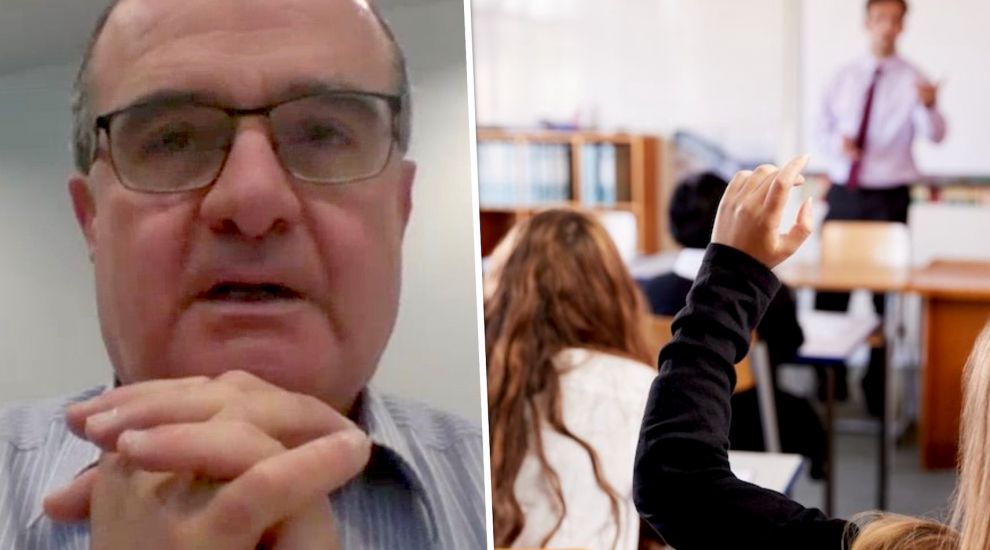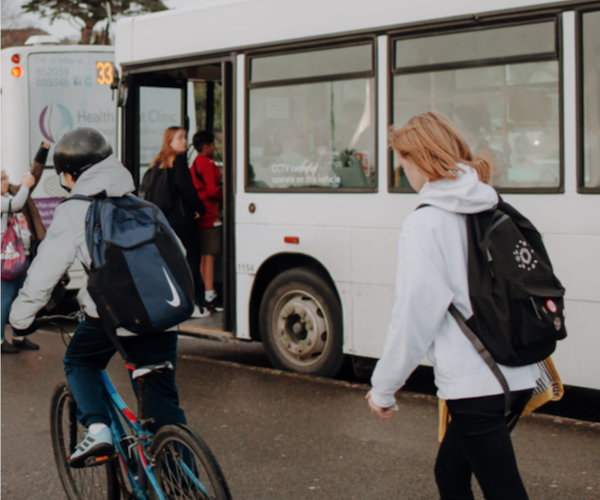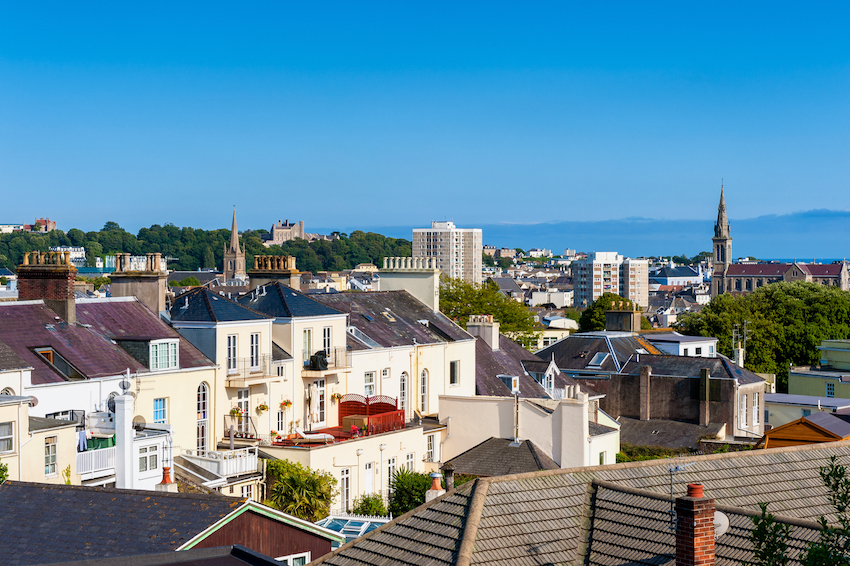


School closures “did not have a particular impact” on the spread of covid-19 in the island, Jersey’s leading infectious diseases specialist has said.
According to Dr Ivan Muscat, it was initially predicted that the respiratory virus would behave like influenza, with children acting as “super spreaders”.
But, when asked by Express at a briefing today about the effectiveness of different measures in bringing down the R number - a measure of how quickly the illness is spreading locally - the former Acting Medical Officer for Health revealed that the decision to close schools had barely dented it.

Pictured: Dr Muscat said that children did not appear to be "super spreaders" of covid-19, as originally predicted, and that he had no concern about their potential return to school.
“Very interestingly, school closures did not have a particular impact on Rt - that remained steadfastly at around 1 around the school closures, which is actually really important,” he explained.
The R number remaining around one means that every infected patient will pass the illness on to at least one other individual.
Dr Muscat continued: "Historically, we thought that covid might behave like influenza, and influenza, like we all know, is children that have influenza are super spreaders, not knowing at the time that covid was not like that because no one had seen covid before.
“We assumed that it behaved like influenza in children, but it doesn’t. We now have evidence in many countries that children are not super spreaders of covid, and our local evidence is similar to that. School closures do not have a significant effect on the epidemiology of covid.”
He said that, “unfortunately”, the most successful measure had been the “most draconian” one - lockdown.
Since then, Jersey's R number has fallen below one, and is now closer to zero.
CLICK TO ENLARGE: How Jersey's 'R' has dropped following the introduction of different measures.
Dr Muscat added, however, that physical distancing had a “very big impact” and that travel restrictions were also important in curbing the introduction of new cases into the island.
To his mind, the most pragmatic yet effective solution in the long-term would be maintaining physical distancing - “together with good hygiene, of course”.
The infection control specialist later noted: “Our feeling is that medically the reopening of schools will not cause schools or the community a problem, but clearly there are a number of practicalities that need to be ironed out.
“You need to bear in mind that this is against a backdrop of very low covid activity in Jersey, so what I am saying in relation to Jersey may not be applicable to what is happening in other countries.
“But, within our context, within the context of very low covid activity in the community, then it is true to say that schools will not be a cause of concern in reopening either to themselves or the community.”

Pictured: Lockdown was the most effective measure in bringing down the R number, according to Dr Muscat.
Highlighting the low numbers of virus patients in the community, Dr Muscat explained that there had been no “third generation” cases - islanders picking up the infection from an unidentifiable source - in the past two to three weeks.
Echoing the Health Minister during a conference earlier this week, he reiterated that new cases had only emerged in “small clusters” in healthcare or family settings.
The comments from Dr Muscat come as Jersey’s government continues to grapple with with the issue of when to send children back to school, with an announcement this morning that they will remain closed until at least Monday 8 June.
Despite the finding that children are not the ‘super spreaders’ they were initially expected to be, many schools are still looking at physically distanced classroom set-ups.
Beaulieu, for example, has constructed a marquee on its lawn to allow students and staff to spread out.
By lunchtime today - flooring and awning tomorrow. Safe spaces to learn. pic.twitter.com/G0dm1m0kzN
— Beaulieu School (@BeaulieuSchool) May 21, 2020
Meanwhile, the States of Guernsey announced today that schools will be open to all pupils starting from the second week of June.
The island’s Committee for Education, Sport and Culture had said just last week that only primary schools would reopen next month, with pupils only attending lessons for two days a week.
However, following updated medical advice, it is has since decided that all of Guernsey’s States-run schools will re-open to all students for five days a week from Monday 8 June.
It's part of the Bailiwick's wider lockdown exit strategy which will see Phase 4 start from next Saturday (30 May).
It includes the reopening of hairdressers and other salons, as well as more shops, cinemas and museums, subject to physical distancing guidelines being followed.
Comments
Comments on this story express the views of the commentator only, not Bailiwick Publishing. We are unable to guarantee the accuracy of any of those comments.